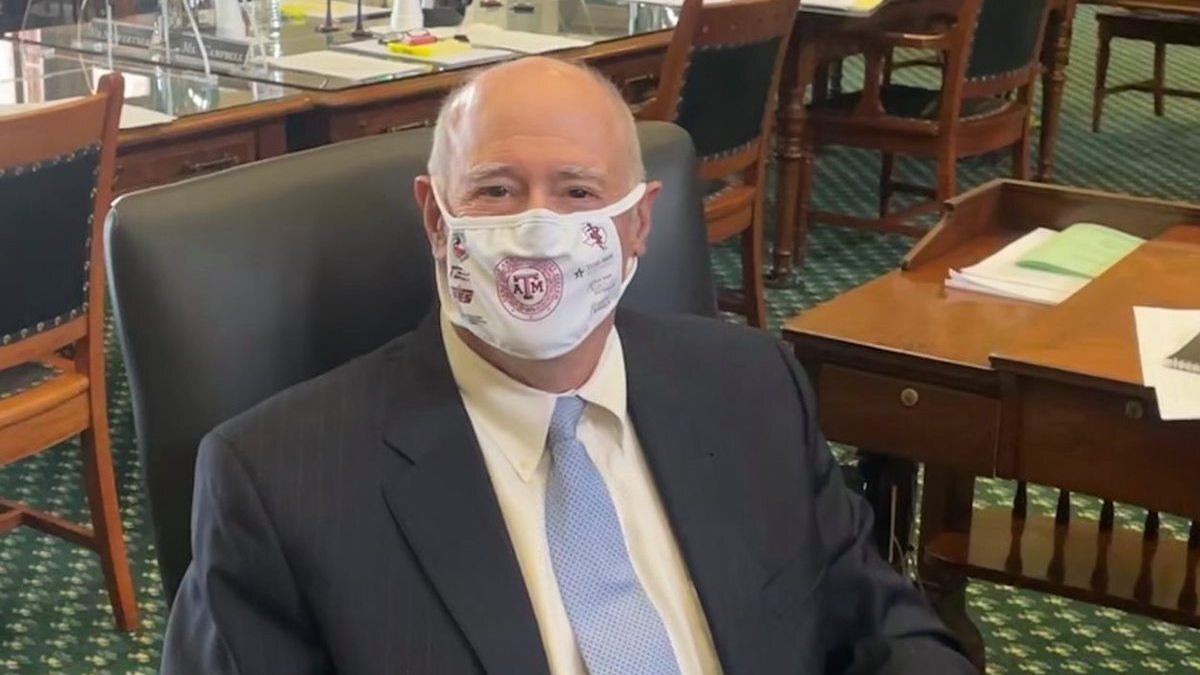Gov. Greg Abbott's direction earlier this week to the state Legislature in its second special session to consider big-government-style mandates against COVID vaccine mandates is finding receptive GOP lawmakers.
Republican state lawmakers are highly skeptical of the COVID-19 vaccine, a clear about face from a decade ago when the state mandated meningitis vaccines for students 22 and younger enrolling in college, The Texas Tribune said in its news story published Aug. 26.
"Vaccine requirements and exemptions have historically been determined by the Legislature, and their involvement is particularly important to avoid a patchwork of vaccine mandates across Texas," Abbott, who earlier this month suffered a breakthrough case of COVID, said in a statement issued Aug. 25. In that statement, Abbott affirmed his current policy mandating against COVID-19 vaccination mandates "by any government entity in the State of Texas."
Abbott's statement also announced his executive order placing a new agenda item about that mandate against mandates for the Legislature to consider and "what exemptions should apply to such mandate."
Abbott's statement came the day after he posted positive news to his Twitter page about the state's COVID positivity rate.
"The COVID seven-day positivity rate has now declined for two straight weeks," Abbott said in his Aug. 24 Twitter post. "It topped out on Aug. 9 at 18.72%. Since then, it has steadily declined to 15.76%. States hit earliest with delta are now seeing a decline in COVID cases. Texas may soon see a similar decline in cases."
On Aug. 26, Abbott announced the deployment of 2,500 additional out-of-state medical personnel to help ease pressure on the state's overwhelmed health care facilities, including nursing homes, in the face of this summer's COVID surge. Abbott also gave a nod to the efficacy of being vaccinated against COVID.
"The medical personnel and equipment deployed by DSHS will provide crucial support to our health care facilities as they treat hospitalized cases of COVID-19," Abbott said in his more recent statement. "Texans can do their part to reduce the spread of COVID-19 and hospitalizations by getting the vaccine. It's safe, effective and your best defense against COVID-19. Visit covidvaccine.texas.gov to find a vaccine provider near you."
Meanwhile, back in the state Legislature, its "special" session began on Aug. 7 and still continues. Two days prior, Abbott placed 17 items on the Legislature's special session agenda, including one related to Texas children going to school during this era of COVID and another about how local governments may go about spending federal COVID funds.
Abbott's new agenda item directs the state Legislature's agenda to, "Consider legislation regarding whether any state or local governmental entities in Texas can mandate that an individual receive a COVID-19 vaccine and, if so, what exemptions should apply to such mandate."
Abbott's executive order came two days after the U.S. Food and Drug Administration (FDA) fully approved the Pfizer COVID vaccine.
In its news story, The Texas Tribune reported that K-12 students in the state's public schools currently are required to be vaccinated against tetanus, polio, measles, mumps and rubella, hepatitis B, chickenpox, meningitis and hepatitis A. College students in the state still are required to be vaccinated against meningitis and Texas health care and veterinary students are required to be vaccinated against rabies, tetanus-diphtheria and hepatitis B.
COVID vaccine mandates vs mandates against vaccine mandates in the state legislature falls predictably along party lines with Republicans against the vaccine mandates and Democrats all for them.
Sen. Kel Seliger (R-Amarillo) said in The Texas Tribune news story that he voted for the meningitis vaccine mandate in 2011 because that vaccine had been around for a while, unlike the COVID vaccines and their possible long-term side effects. Seliger said he now prefers encouragement and reliance on personal responsibility to government vaccine mandates.
"Ultimately, if it becomes mandatory, I think that’s a good idea," he said. "But at this point, I’m comfortable with opt in."
Sen. José Menéndez (D-San Antonio) said in the news story that he supports the autonomous rights of local governments to decide about their own COVID-19 vaccination rules.
"At a minimum, that's what we should be doing," Menéndez, who earlier this month suffered a breakthrough case of COVID-19, said in the news story. "I personally think that for the best interest of the 30 million Texans and especially the 6 million kids in the state that can't be vaccinated, we owe it to them so they don’t have to go through this."

